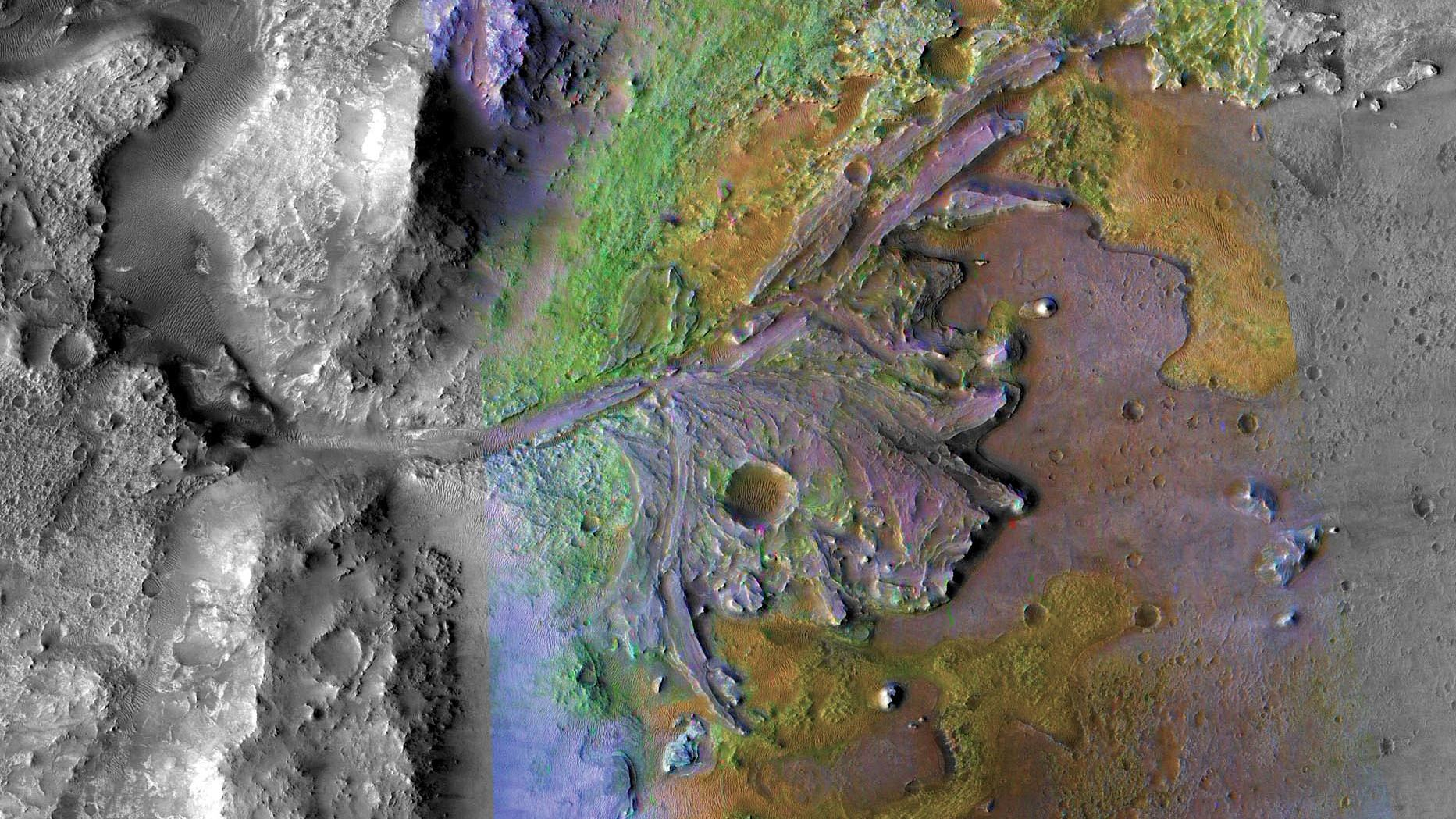
Tech & Sci
16:07, 20-Nov-2018
NASA picks ancient Martian river delta for 2020 rover touchdown
Updated
15:24, 23-Nov-2018
CGTN

NASA has picked an ancient river delta as the landing site for its uncrewed Mars 2020 rover, to hunt for evidence of past life on the Earth's neighboring planet, officials said on Monday (November 19).
Even though the red planet is now cold and dry, the landing site, Jezero Crater, was filled with a 500-meter deep lake that opened to a network of rivers some 3.5 to 3.9 billion years ago.
The 45-kilometer wide basin "could have collected and preserved ancient organic molecules and other potential signs of microbial life from the water and sediments that flowed into the crater billions of years ago", NASA said in a statement.
At least five different kinds of rocks, including "clays and carbonates that have high potential to preserve signatures of past life," are believed to lie in the crater, just north of the Martian equator, the U.S. space agency said.
Scientists have debated where to land the rover for the past four years and whittled down their decision from a total of 64 possible sites.
The 2.5 billion U.S. dollars' worth rover - a joint project of the European Space Agency and NASA - is set to launch in July 2020, and land in February 2021.
Mars 2020 is designed to land inside the crater and collect samples that will eventually be returned to the Earth for further analysis, perhaps by late 2020s.
(With inputs from AFP)
Source(s): AFP

SITEMAP
Copyright © 2018 CGTN. Beijing ICP prepared NO.16065310-3
Copyright © 2018 CGTN. Beijing ICP prepared NO.16065310-3